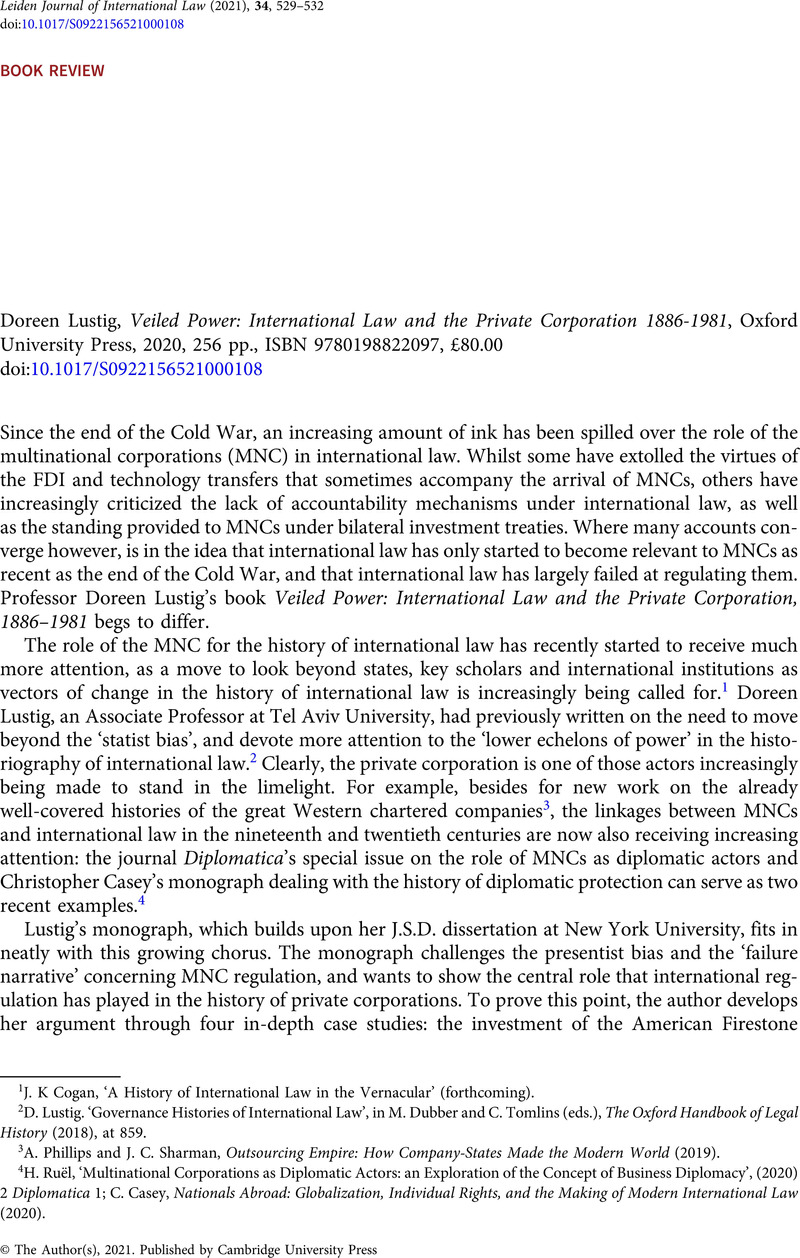No CrossRef data available.
Article contents
Doreen Lustig, Veiled Power: International Law and the Private Corporation 1886-1981, Oxford University Press, 2020, 256 pp., ISBN 9780198822097, £80.00
Published online by Cambridge University Press: 24 February 2021
Abstract

- Type
- Book Review
- Information
- Copyright
- © The Author(s), 2021. Published by Cambridge University Press
Footnotes
PhD candidate, Institute for Legal History & Rolin-Jaequemyns International Law Institute (Ghent University, Universiteitstraat 4 – 9000 Gent), CORE (Free University of Brussels) [filip.batsele@ugent.be]. This work is supported by the Fonds Wetenschappelijk Onderzoek – Vlaanderen (PhD Fellowship fundamental research, FWO File Number 1126320N).
References
1 J. K Cogan, ‘A History of International Law in the Vernacular’ (forthcoming).
2 D. Lustig. ‘Governance Histories of International Law’, in M. Dubber and C. Tomlins (eds.), The Oxford Handbook of Legal History (2018), at 859.
3 A. Phillips and J. C. Sharman, Outsourcing Empire: How Company-States Made the Modern World (2019).
4 H. Ruël, ‘Multinational Corporations as Diplomatic Actors: an Exploration of the Concept of Business Diplomacy’, (2020) 2 Diplomatica 1; C. Casey, Nationals Abroad: Globalization, Individual Rights, and the Making of Modern International Law (2020).
5 D. Lustig, Veiled Power: International Law and the Private Corporation 1886-1981 (2020), 3.
6 M. Koskenniemi, ‘Sovereignty, Property and Empire: Early Modern English Contexts’, (2017) 18 Theor. Inq. Law 355.
7 Lustig, supra note 5, at 26–7.
8 Ibid., at 67.
9 Ibid., at 110–11.
10 Ibid., at 142.
11 Ibid., at 219.
12 Ibid., at 227.
13 Ibid., at 43–5.
14 Ibid., at 195–9.
15 See ibid., at 180.
16 For example, see A. George and A. Bennett, Case Studies and Theory Development in the Social Sciences (2005).


